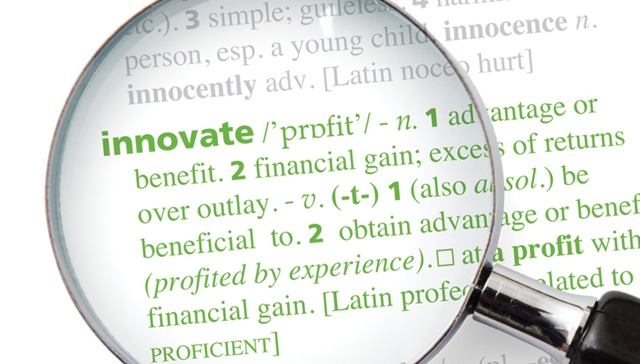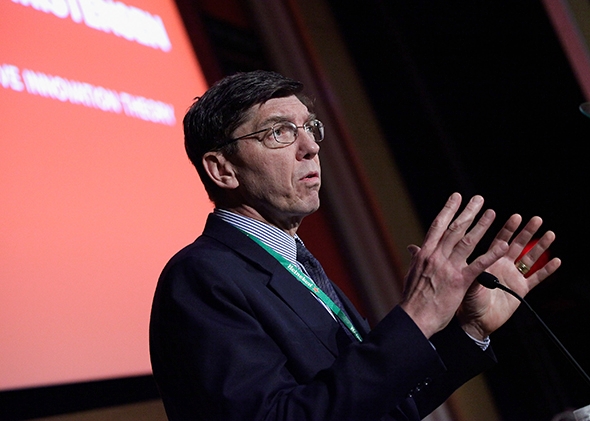
by admin | Jul 8, 2014 | Innovation
The word innovation can inspire either great enthusiasm or a lot of eye-rolling. While it’s a huge driver for the technology industry globally, we know that locally it can crash against the reality of resource and tactical constraints. Given these challenges, Rick Mears, CIO of Owens & Minor and a recent ComputerworldPremier 100 IT Leader, found a way to make innovation work, and work quickly. Read more about it...

by admin | Jun 17, 2014 | Innovation
On the cover of this week’s The New Yorker, an 89-year-old print magazine widely considered among the finest in the industry, is a provocative story by Jill Lepore that takes aim at “the gospel of innovation.” In it, Lepore dissects Clayton Christensen’s theory of “disruptive innovation” and finds a number of flaws that cast doubt on its descriptive and predictive powers. You could pay $6.99 in the United States or $7.99 abroad to buy the magazine and then devote half an hour to reading her story. Or you could read a quick summary here, for free, with a little snarky commentary thrown in as a bonus. Read more about disruptive innovation here....

by admin | Jun 12, 2014 | Innovation
After all the angst generated by the Affordable Care Act, and all the punditry, noise, and debate that accompanied its rollout, you might conclude that there are no practical solutions to our healthcare challenges. But, of course, there are new answers and solutions and new, creative approaches to solving healthcare problems. You just have to look at innovative, private sector enterprises. And if you do, you might find one of the more innovative answers to eldercare right there in your old-fashioned television set. Just ask Kian Saneii, CEO of Independa. Read more about whether or not your television is the future of healthcare innovation...

by admin | Jun 6, 2014 | Innovation
I define it because I want to know what I am aiming at. How do we define innovation and why should we? My current definition of innovation is: Newness that proves its worth. The term innovation comes from the Latin word innovatus, which means “into the new”. So, innovation has movement or change that brings about “newness”. In addition there is an implicit element that exists in the modern use of the term. It is the idea that it must add value, whether to a company, society, government, or whatever context. The Latin root of value is vale, or val, strength and worth respectively. So, when ”newness” is created the change it causes must prove its worth. It must be strong enough to stand the test of time, and only things that people adopt and use, as a part of the fabric of their lives, will prove themselves truly valuable. Read more about defining innovation...

by admin | Jun 6, 2014 | Innovation
The latest mega-merger in the telecommunications sector, that ofAT&T and DirecTV, would be the fourth largest in history, and it comes only months after the nation’s largest cable operator Comcast announced that it was buying Time Warner Cable, the second largest cable operator. Nor is telecommunications the only sector to see such acquisitiveness. Microsoft purchased the devices and services business of Nokia for $7.2 billion late last year, Google snapped up Nest for $3.2 billion in January, and Facebook bought WhatsApp for $19 billion in February. Read more about how mega-mergers are killing innovation...

by admin | May 30, 2014 | Innovation
The future of insight-driven innovation has a theme – customized and individualized. As our systems, devices, and networks collect more data on an individual level and we learn to analyze it for personalization, we could become a society that embraces individuality and understands that no two situations are the same. Here are some ways that the future of insight-driven innovation can help us learn more, live longer, and improve the world around us. 1. Social media is becoming the database containing our life’s information With all the social media data that has been openly shared by the billions of users and stored in data warehouses, social networks really do have super powers – not just in the platform or the vast user-base, but in their ability to mine the collected data. Social networks have information about daily activities, life milestones, and the words and emotions spouted off in excitement and frustration. From this information, data scientists and others are mining aggressively to find out more about the human race – everything from how we see ourselves and how we see others, to trends in happiness and depression. A lot of these studies are focused on teens who are growing up with this technology, and more interestingly, the studies are showing how teens’ digital lives affect their offline lives. As we continue to collect and analyze this data, we can proactively modify our lifestyles to prolong a healthier, happier life. Read more about the other ways that insight-driven innovation will change in the future here....







